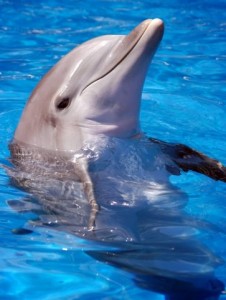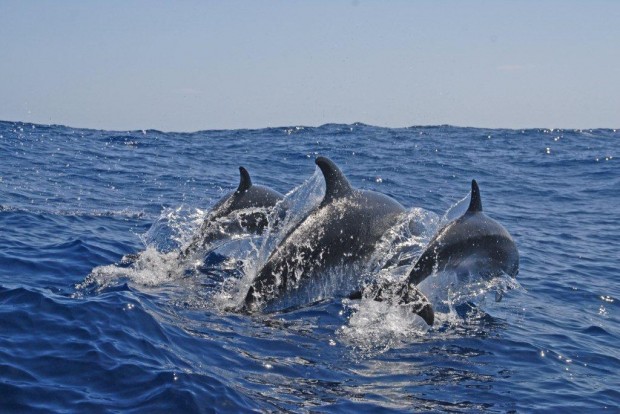Bermuda Role In New Dolphin Health Study
 Research conducted off Bermuda, the US East Coast and the Gulf of Mexico by marine scientists is expected to serve as baseline measurement for future research to define the health effects of certain pollutants on bottlenose dolphins.
Research conducted off Bermuda, the US East Coast and the Gulf of Mexico by marine scientists is expected to serve as baseline measurement for future research to define the health effects of certain pollutants on bottlenose dolphins.
A research team looked at the levels of persistent organic pollutants [POPs] found in male dolphins along the coast of Bermuda and in the two other regions.
The findings of their seven-year study were recently published in the journal “Environmental Science & Technology.”
Bottlenose dolphins — among the most intelligent creatures in the animal kingdome — are found in Bermuda’s off-shore waters.
Highly sociable, the marine mammals are organised in long-term social units called pods.
These pods consist of an average of seven dolphins, but size and composition has been known to vary.
Recently Bermuda conservationist and documentarian Andrew Stevenson filmed a pod of wild dolphins riding the bow waves of migratory humpback whales near Challenger Bank [pictured below].
POPs are a large group of man-made chemicals that, as the name suggests, persist in the environment.
They can spread globally through air and water, accumulate in the food chain, and may have carcinogenic, neurodevelopmental, immune or endrocrine effects on both wildlife and humans.
To study POP concentrations in male bottlenose dolphins researchers from the US National Institute of Standards and Technology, the National Oceanic and Atmospheric Administration, the Duke University Marine Laboratory, Florida State University and the Chicago Zoological Society teamed up to collect and examine blubber biopsy samples from 2000 to 2007 at eight locations along the US East coast (from New Jersey to Florida), five sites in the eastern Gulf of Mexico and off Bermuda.
The researchers analysed the dolphin blubber for POPs that were once used as insecticides, insulating fluids, flame retardants and in fungicides.
In 2007 the findings of the first comprehensive scientific study of bottlenose dolphin activity in Bermuda was published.
“Before our study, knowledge of the habitat use of bottlenose dolphins in Bermuda waters was limited to occasional reports by fishermen and other local residents of Bermuda,” said the scientists who took part in that groundbreaking project.
“Our pilot study has not only been able to document the occurrence of offshore bottlenose dolphins in Bermuda waters, it has provided us with a glimpse of the areas around Bermuda that these animals frequent, including the steep-sloped area between Bermuda and Challenger Bank.”
Read More About
Category: All, Environment, News



Free the dolphins from Dolphin Quest in Dockyard, Bermuda! These beautiful creatures should not be held in captivity… and certainly not in such a small space. If you truly love dolphins (as everyone says they do) please release them… or at a very minimum send them to a destination that is better than this!
I agree with Kim. I was appalled at the conditions these beautiful creatures are being forced to live in. God put them in the ocean for a reason.
I am surprised and saddened that the Bermuda government allows such cruel and inhumane treatment of these magnificent creatures.